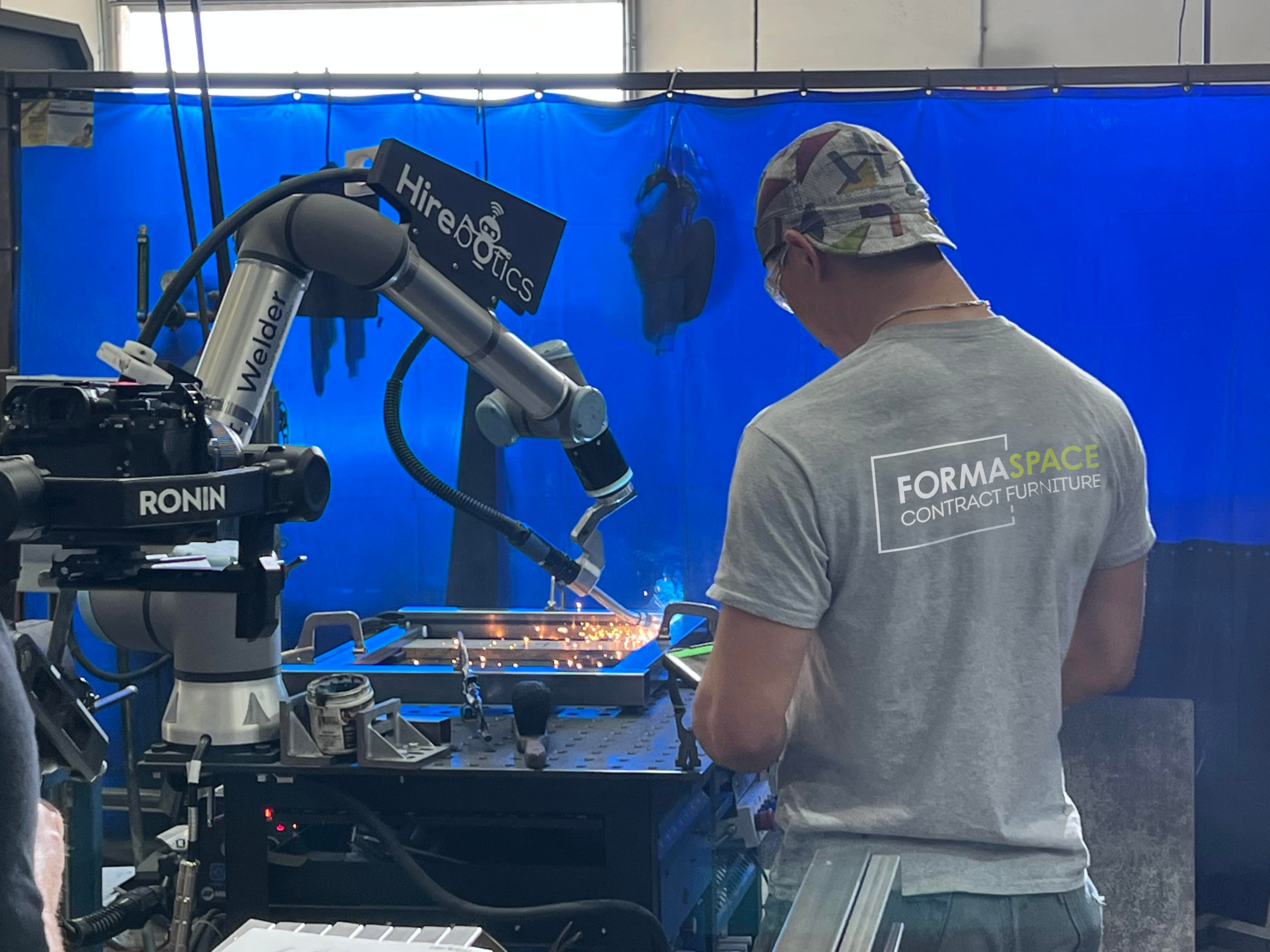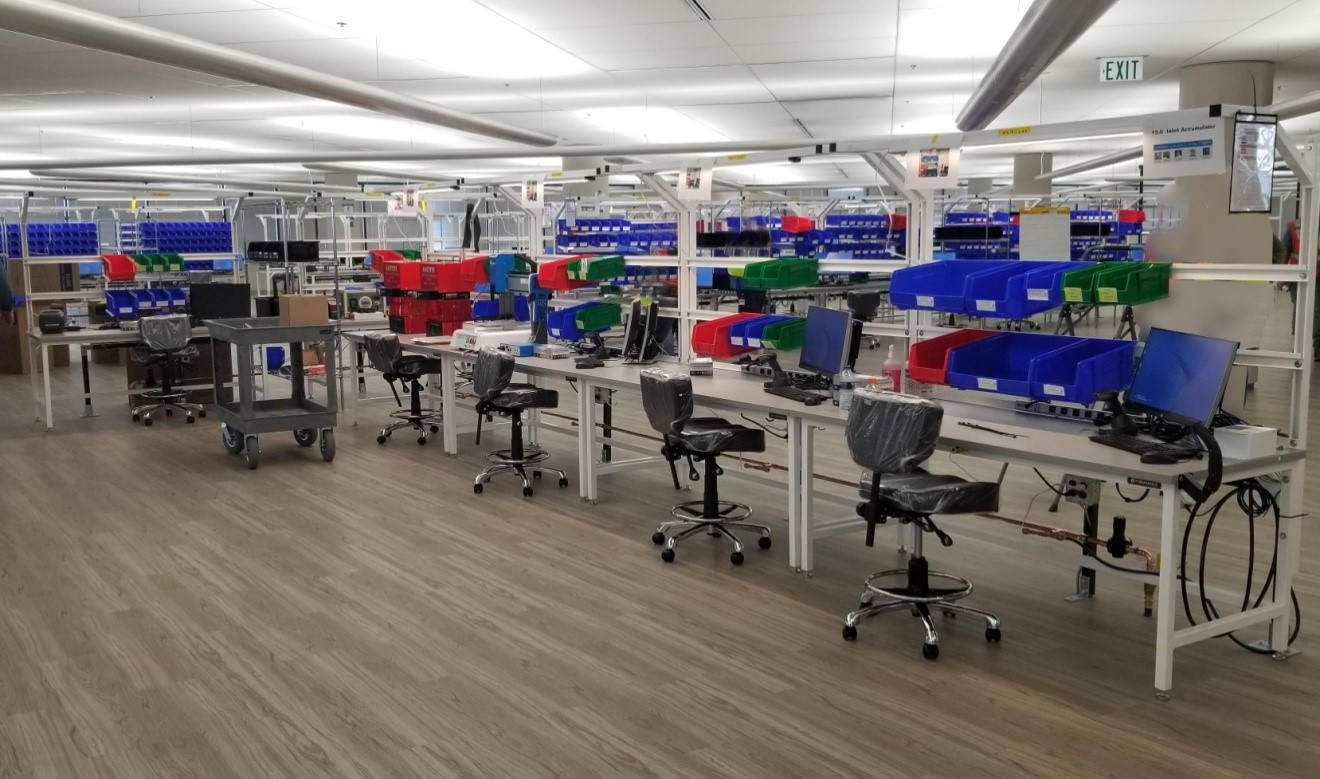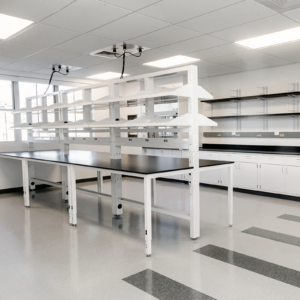Distrust of Scientific Experts and Institutions is Fueling the Rise of an Anti-Science Political Identity
Educators have a unique role and responsibility in encouraging the next generation of young scientists, technology experts, engineers, and mathematicians – the STEM students who can help solve today’s most pressing challenges.
However, there are strong prevailing headwinds impeding our progress at present.
Distrust of scientific experts has become a persistent phenomenon across the US in recent years, as many communities’ negative views and distrust of science and technology have hardened into a heartfelt political identity.

Kristin Lunz Trujillo, a postdoctoral researcher at Northeastern University and Harvard University, recently wrote a paper in Political Behavior titled Rural Identity as a Contributing Factor to Anti-Intellectualism in the U.S. in which she attempts to correlate an anti-science outlook with those who maintain a strong identity as being from a “rural” area.
Lunz Trujillo argues that “rural identifiers” tend to view intellectuals and experts as members of an “urban-affiliated” class who are “unduly telling others what to do while lacking in common sense—a norm affiliated with rurality.”
Distrust in science experts and technology is nothing new – we only have to look back at the Luddite Movement in the early 1800s, where traditional British craft workers producing textile goods by hand rose up to destroy factory knitting machines that threatened to undermine their livelihoods through advances in automation.

But what are the roots of today’s skepticism and outright resentment of expert opinions?
Some might point to the spectacular intelligence failure of the George W. Bush administration, which led us into the Iraq War based on the mistaken conclusion that the country harbored “weapons of mass destruction” as a turning point in undermining trust in subject matter experts and political institutions alike.
Others, such as writer Jonathan Haidt, whose recent article in the Atlantic, “Why the Past 10 Years of American Life Have Been Uniquely Stupid,” argues that the recent pervasive rise of social media has helped fuel the circulation of ever higher levels of damaging misinformation and conspiracy theories that have seriously undermined the intellectual quality and honesty of American social discourse.
Can We Live Long and Prosper in a World Without Experts? Scientific Illiteracy and Antipathy toward Technology can Reduce Future Economic Growth and Undermine Societal Health and Wellbeing
The growing incidence of scientific illiteracy and widespread distrust of science and technology experts is not without its costs to our society’s economic and public health.
The world is not without its problems, ranging from recent pandemic diseases, rising costs for energy, the increasingly apparent impact of climate changes, and looming threats to our food supply – all of which support the need for educators to cultivate more skilled, creative, scientific minds to work together to solve or at least help mitigate these growing crises.
For decades, the US has been a leader in helping solve the world’s problems through scientific and technological discovery – from helping spearhead agriculture’s Green Revolution of the 1950s and 1960s that helped feed the world to developing transistors, integrated circuits, and the Internet that power today’s computing and communication sectors – while helping Americans enjoy ever higher living standards here at home thanks to the economic benefits of enhanced productivity brought about by advances in science and technology.
But could rising scientific illiteracy and outright antipathy toward science and technology erase those economic gains, causing our living standards to fall substantially in the coming years?
It’s not an unreasonable question.
For example, for years now, Chinese researchers have outperformed Americans in per capita publication of research papers and patent filings. And, as China’s BYD car company overtakes America’s electric car innovator, Tesla, to become the world’s largest producer of electric cars, Tesla owners here at home and public charging stations are the subject of rampant vandalism.
In some cases, we can chalk this up to resentment against those wealthy enough to afford a high-end Tesla car. But there may be more sinister motivations at work.
Of course, this vandalism phenomenon is not just limited to the USA; the UK has seen a spate of 5G telephone communication equipment being burned to the ground due to a false belief that they spread Covid. And even the Netherlands is not immune to its own conspiracy theories, as the appearance of ‘protective’ anti-5G necklaces (which turn out to be radioactive!) demonstrate.
But as the recent Covid epidemic demonstrated, the spread of anti-science and anti-expert conspiracy theories and hoaxes can also seriously impact our collective public health.

As we’ll discuss in more detail in the next section, the Scientific Method encourages careful consideration of different, competing hypotheses, which are then rigorously tested in controlled studies, with the conclusions thoroughly examined for potential errors and inaccurate assumptions.
Yet, during Covid, we saw conspiracy theories spreading like wildfire on the Internet, from tragic cases where individuals ingested bleach in the hope of eliminating the Coronavirus or stocked up on veterinary drugs, such as Ivermectin (used to treat roundworms, threadworms, and other parasites in dogs and cats) in the hopes they would be a preventative (prophylactic) or post-exposure cure for a serious case of Covid.
Does bleach have a role in public health? Of course! As a disinfectant. Does Ivermectin have a health benefit? Yes, it controls parasites. Could either be used in some fashion to treat Covid infections? Well, it’s not likely. But anyone with a basic science education should know that a controlled study to test a hypothesis is the right approach – rather than follow advice from an unvetted Facebook post.
Unfortunately, what we saw during the height of the pandemic was a new low in scientific literacy, a phenomenon that researchers from the University of Pennsylvania have termed a “syndemic,” e.g. more than one pandemic occurring at the same time.
In their view, the syndemic was a combination of the Covid pandemic itself and what the World Health Organization (WHO) calls an infodemic – defined as “deliberate attempts to disseminate wrong information to undermine the public health response and advance alternative agendas of groups or individuals.”
A Thorough Understanding of the Scientific Method can Help STEM Students fight Scientific and Information Illiteracy

It’s critical that STEM educators help raise our students’ overall scientific and information literacy in the fight against infodemics.
But the challenge is greater than ever.
Today’s students (just like the public in general) are exposed to a non-stop firehose of information sources on social media (and the internet in general).
While some of the information is legitimate, vetted, and fact-based – it happens to be mixed in with posts from people expressing their valid personal opinions to a mixture of hoaxes, conspiracy theories, and even manipulated “deep fake” videos purporting to be real footage of interviews or news sources.
Fortunately, the scientific method itself is one of the most powerful tools we have in our arsenal to combat misinformation.
Of course, following the Scientific Methods is not as simple as the evergreen advice from Robert Fulghum in his 1990 classic book “All I Really Need to Know I Learned in Kindergarten,” which includes this prophetic advice:
Share everything. Play fair. Don’t hit people. Put things back where you found them. Clean up your own mess. Don’t take things that aren’t yours. Say you’re sorry when you hurt somebody. Wash your hands before you eat. Flush. Warm cookies and cold milk are good for you.
But the Scientific Method comes a close second.
It teaches our students the tools they need to know to evaluate information, including how to identify credible sources, how to create a hypothesis and test it in a controlled way, and the importance of debating the credibility of established knowledge in light of new facts.
Miscasting the Role of the Scientific Method: It’s Not About Who’s Right and Who’s Wrong; it’s about Furthering Knowledge by Evaluating and Testing Ideas
However, in common practice, the Scientific Method gets a lot of misuse, and we need to help stamp out this bad habit.
For example, scientific theories and their hypotheses are too often presented as established facts (even when they are widely accepted as true), when in reality, all they can offer is conclusions based on evidence – e.g., conclusions based on the best of our knowledge – which remain subject to change as new information emerges that upends existing scientific theories.
Remember, the theory of evolution is a theory, not a fact.
Just as the theory of relativity in physics is a theory, not a fact.
Presenting theories as facts is quite disingenuous and seriously undermines the fundamentals of the scientific method.
And while we’re on the soap box, let’s not forget that a good scientific education is not just a matter of memorizing facts (even if they are only hypotheses)… rather, it’s more important to understand how discoveries have been made through experimentation and observation and collection of data that prove or disprove scientific hypotheses.
Becoming Science Literate Means being Open to New Ideas while Avoiding Cancel Culture’s Tendencies to Block out Unorthodox Viewpoints
Every twenty-four hours, the Sun rotates around the Earth, rising in the east at sunrise and setting in the west at twilight.
Such was the orthodox opinion of the Catholic Church in 1616 when it banned Nicholas Copernicus’ 1543 book “On the Revolutions of the Celestial Spheres” and began investigating the beliefs of Italian astronomer Galileo Galilei, both of whom promoted the then heretical theory that the Earth traveled around the Sun.
Galileo was ultimately excommunicated from the church and banned to home confinement for the remainder of his life – an ultimate example of what we today might term “de-platforming” and “cancel culture.”
But sometimes, the unorthodox view is the right one. Maybe not very often, but the scientific method needs to remain an open vehicle for opposing ideas.
In other words, contrary opinions (and hypotheses) should always be welcome within the framework of scientific discovery.
These days, we hear a lot of people complaining about “cancel culture” and “de-platforming” and aspects of “woke” culture that seek to strip people and their ideas of the right to be heard.
But the rise of cancel culture and de-platforming is not just a phenomenon of left-wing colleges and “woke” blue states.
For example, in 2012, North Carolina HB 819 outlawed state officials from using rising sea level data in land use planning along its hurricane-prone Outer Banks. Florida banned government officials from using the phrase “climate change.” And in Texas, contractors have to sign a pledge that they will not boycott nor divest investment funds from Israel.
So much for free speech.
But where do we draw a bright line between free speech, unorthodox views, and hoaxes/conspiracy theories?
Here, we are reminded of the words of the late New York Senator Daniel Patrick Moynihan (with a nod to James R. Schlesinger):
“Everyone is entitled to his own opinion, but not his own facts.”
Wild hoaxes and conspiracy theories that are unsupported by evidence (or worse, untethered to reality) have no place and need to be called out for what they are, untruths and propaganda.
Importantly, the proper application of the scientific method is just the tool we need to call out hoaxes and conspiracy theories.
The Danger of Playing Fast and Loose with the Truth: Ethics Failures by Researchers Undermine Trust in Science and Help Fuel Conspiracy Theories
We’ve put the scientific method on a bit of a pedestal in this article.
But unfortunately, the actions of unethical researchers have also helped undermine these noble principles by playing fast and loose with the truth.
Indeed, there have been some spectacular ethical breakdowns in recent years to the detriment of the reputation of scientists, researchers, and scientific knowledge in general.

Here are a couple of egregious examples of research misconduct:
- Bell Labs physicist Jan Hendrik Schoen was dismissed in disgrace after an internal review committee discovered he had fabricated entire data sets.
- The social psychologist Diederik Stapel had more than fifty of his published papers retracted after it was discovered he had manipulated data and, in some cases, fabricated entire experiments.
- Animal Researcher Li Chen was found guilty of fabricating or plagiarizing data in several publications as well as NIH grant applications.
- In 1996, New York physicist Alan Sokal submitted a spoof article for publication that was full of buzzwords, blatant scientific errors, and meaningless jargon – yet it was accepted and published, a damning indictment of the lack of peer review discipline that science depends on.
But one of the most egregious examples of research misconduct was the 1998 paper by Dr. Andrew Wakefield published in The Lancet, which implied that vaccines (such as the MMR vaccine) given to 8 of 12 children studied were associated with “chronic enterocolitis and regressive developmental disorder.” In later media interviews, Wakefield implied that vaccines were responsible for autism.
On its face, the sample size of only 12 children was far too small to be experimentally sound, and Wakefield was later criticized for accepting funding by the lawyers of parents involved in lawsuits against vaccine manufacturers (a clear case of financial conflict of interest).
Meanwhile, other much larger and more rigorous studies have been unable to find a link between vaccines and autism.
The Lancet retracted Wakefield’s article in 2012, saying only that “several elements are incorrect, contrary to the findings of an earlier investigation,” but the damage was done.
This single study, and its outside publicity fueled by social network sharing, helped the antivaccine movement grow into a worldwide phenomenon, which later proved to be a major impediment to the rapid uptake of Covid vaccines during the pandemic.
Scientific Research and The Scientific Method Gives Us Hope for a Brighter Tomorrow
Despite the ongoing problems of pervasive misinformation, untruths, and outright fabrications (and the self-inflicted wounds caused by scientific misconduct), it’s important we keep the faith.
The scientific method is one of the best tools we have for uncovering exciting new discoveries and making informed decisions that can help make the world a better place.
Promote it and protect it from the dangers that come from pessimism and defeatism.
If we work together to educate the next generation, we can find new solutions for today’s problems, and a brighter future will be within our grasp.

Formaspace is Your Partner for the Future of Education
If you can imagine it, we can build it, here at our factory headquarters in Austin, Texas.
Whether you are building a new school, cafeteria, classroom, or school laboratory, Formaspace can help. Our customers include the nation’s leading K-12 school districts and nearly all the Ivy League colleges and Universities.
Want to find out more? Contact your Formaspace Design Consultant today.
Formaspace products are also available via the GAO Purchasing Schedule as well through the TIPS purchasing cooperative.








